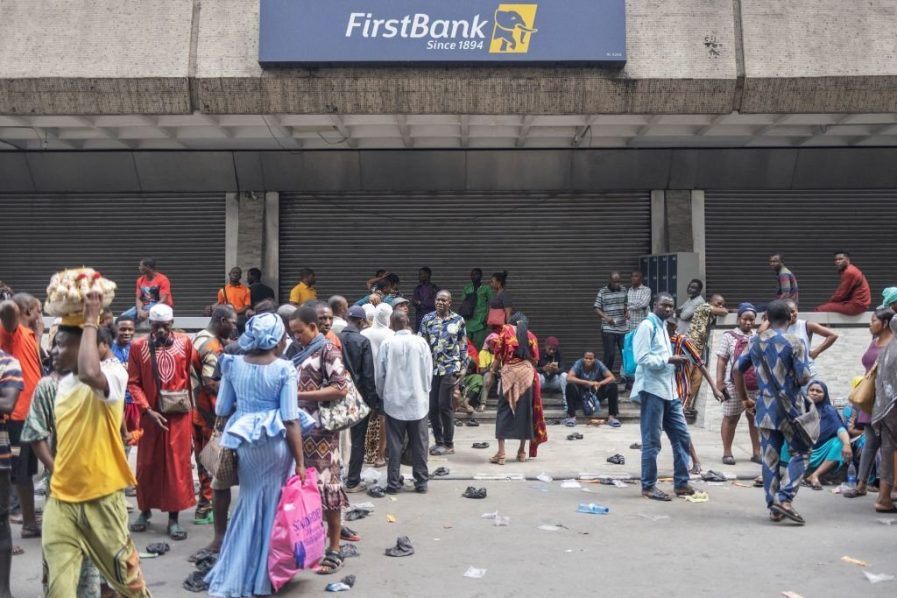
The cash scarcity has triggered protests in major cities as angry customers attacked banks and barricaded roads in unrest just days before Nigeria holds a February 25, 2023 presidential election.
Nigerian President Muhammadu Buhari in a February 16, 2023 broadcast sought to ease the scarcity by allowing old 200 naira bills to circulate until April 10. Old 500 and 1,000 notes were no longer legal tender. (Photo by Michele Spatari / AFP) (Photo by MICHELE SPATARI/AFP via Getty Images)
Benue residents say they were facing severe financial difficulties as banks in the state grapple with a persistent cash crunch, forcing many customers to rely on Point of Sale (POS) terminals for everyday transactions.
They bared their minds in an interview with the News Agency of Nigeria (NAN) on Wednesday in Makurdi.
According to them, the scarcity adversely affected people, particularly now that preparations were ongoing for end-of-year festivities.
A customer, Mr Wilfred Anum, decried the scarcity of physical currency, which had led to widespread frustration and long queues at Automated Teller Machines (ATMs).
“This is sad. We are at the mercy of POS operators. Some are charging as high as N300 and some even N400 to withdraw N10,000.
“Customers have increasingly resorted to POS systems to make payments and withdrawals, but the cost and limitations of using these alternatives are becoming significant hurdles.
“While POS transactions offer a solution, they come with their own set of problems, such that their transaction fees have become burdensome for those making frequent payments,” Anum said.
A small-scale trader, Mr Dondo Wende, also expressed concern over the additional charges that had made their businesses less profitable.
“The fees are too high, and sometimes the machines don’t work properly, causing delays,” Wende said.
Meanwhile, a trader, Mrs Nguveren Imo, said that the ongoing cash crisis was having a negative effect on the local economy, explaining that small businesses, which form the backbone of Benue’s economy, were the worse hit, as they rely heavily on cash transactions.
“The inability to access cash is stalling economic activities, and it has long-term consequences for the economy.
“We cannot survive without cash; it is difficult to pay local suppliers who need cash because they operate in non-bankable areas.
“We also need to settle debts or even buy stock. We are stuck in this cycle, and it is affecting not just businesses but families as well,” she said.






